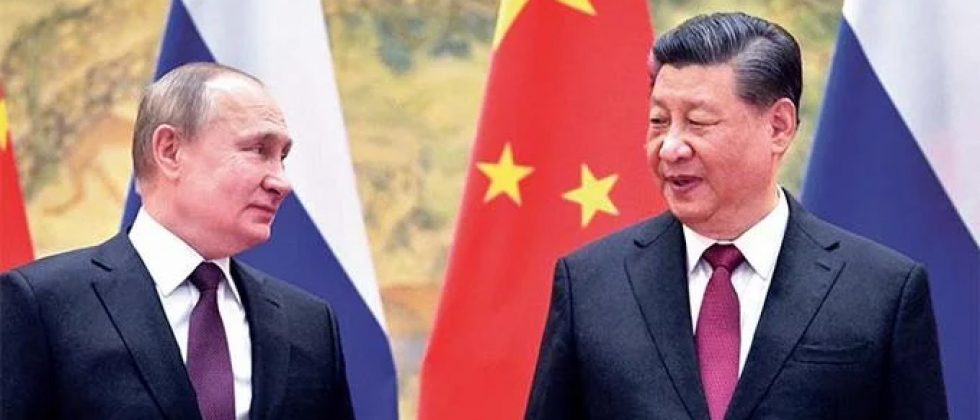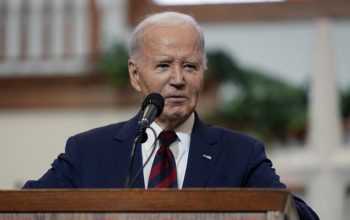news
“The Crisis in Ukraine: An Uncertain End”, an article by Dr. Leonel Fernández
March 21, 2022
Almost a month after Russia’s military invasion of Ukraine, no one knows when or how this conflict will end. Various efforts have been made – both before and after the outbreak of the war – to reach a peaceful and diplomatic solution. But, so far, none have been successful.
On three occasions US President Joe Biden has held talks with his Russian counterpart, Vladimir Putin, to try to reach a negotiated solution to the conflict that is currently taking place between Russia and Ukraine.
And, in addition to Biden, Israel’s Prime Minister, Nattali Bennett, traveled to Moscow to talk with the Russian leader to serve as a mediator in the conflict.
Other prominent political international figures have taken similar steps, such as Turkey´s top leader, Recep Tayyip Erdogan; the Prime Minister of Italy, Mario Draghi; the Prime Minister of Hungary, Viktor Orban and, above all, French President Emmanuel Macron, who has persevered in his attempts to resolve the current military confrontation between Russia and Ukraine through dialogue.
With similar goals on their agenda, the U.S. Secretary of State and Russia´s Foreign Minister have met on several occasions. Others, such as the highest representative of the European Union and official delegations of the parties in conflict, have also met.
The results of all these peace initiatives – to find a diplomatic solution to the worst confrontation that has taken place on European soil since the end of the Cold War more than three decades ago, have failed. Until now, all the initiatives undertaken to mediate in the resolution of the conflict, calling for a ceasefire, setting up a humanitarian corridor, or taking measures in favor of the refugees, have been unsuccessful.
For these reasons, almost a month after the outbreak of hostilities between Russia and Ukraine, it is an enigma to predict when the smoke from the bombs dropped on Ukrainian territory will be extinguished or when the deafening noise generated by the gunboats will be silenced.
A Dialogue Between the Deaf
Due to the firmness and determination with which Vladimir Putin has proceeded with his military incursion, it is not entirely clear at present what his strategic objective is. On the one hand, he could be planning to take Ukraine in order to negotiate under more advantageous conditions or, on the contrary, to overthrow the government of Vladimir Zelensky, occupy Ukraine, dissolve it as a sovereign state, and annex it to the Russian Federation, as had been previously done with the Crimean Peninsula and the Port of Sevastopol.
However, as of now, in order to resolve the conflict with Ukraine, what Russia has done is to draw up a list of demands that has not found receptivity on the part of the Ukrainian authorities, the United States and the European Union.
Listed among the demands: First, that NATO return to its 1997 borders, when an agreement with the United States was signed and where the peaceful expansion of the organization was proposed and, second, paralyze all its military activities in Eastern Europe, Central Asia and the Caucasus. Also, limit its expansion and capacity to act.
A third demand is that Ukraine should be a neutral state and should not seek to become a member of NATO. The fourth demand is that Ukraine accept that the Crimean Peninsula and the Port of Sevastopol belong to the Russian Federation. Fifth and last, that the Ukrainian government grant special status to the separatist regimes of Lugansk and Donetsk, in the Donbas Region, an issue agreed upon in the 2015 Minsk Peace Accords.
Faced with this list of requests, as we previously stated, the response of the United States and the European Union has been negative. At the moment, they believe that what could be negotiated in the region is an arms control policy; place limits on the deployment of short – and medium – range missiles; and create mechanisms for the exchange of information on military maneuvers, specifically under emergency or high-risk situations.
In short, what has occurred is a dialogue between the deaf that has done nothing more than prolong the armed conflict, with its tragic toll of death and destruction.
Beyond Ukraine
The United States and the European Union consider that since Ukraine is not a member of NATO, the concept of collective defense does not apply, as stated in Article 5 of the organization’s charter.
For these reasons, these nations have not responded militarily to Russia’s invasion of Ukraine. And, in addition, because a warlike reaction by NATO against Russia could unleash a nuclear war, and the consequences of this outcome would be disastrous for all of humanity.
Due to these limitations, the response of the Western World has concentrated on economic sanctions. The belief is that by excluding Russia from international financial transactions, trade, investments, freezing of accounts, and the prohibition of trips abroad by high-ranking government officials, the country would come to a virtual paralysis, generating widespread discontent and, perhaps, even a popular uprising that would put an end to Putin’s rule.
However, while all of this is being implemented, the search for alternative formulas to put an end to the conflict through a peaceful dialogue, has not been ruled out.
In this regard, former German Chancellor Angela Merkel has been considered as a possible mediator. Through the years, she has maintained excellent relations with Russia and the European Union, and undoubtedly enjoys great prestige and consideration amongst her peers.
But, on the other hand, another idea has been entertained: that China also play a role as an interlocutor. After all, China maintains a privileged relationship with the parties at war. On the one hand, it is a political and ideological ally of Russia and, on the other, it is Ukraine’s main trading partner.
That, naturally, places China in a position of balance, of maintaining an equidistant space between the parties in conflict, which it has cunningly managed by deliberately assuming a position of strategic ambiguity.
Under these conditions, in addition to its status as a Permanent Member of the United Nations Security Council, China is perceived as a key player in the possible solution of the dispute through the use of diplomatic channels.





